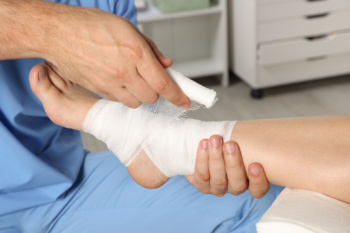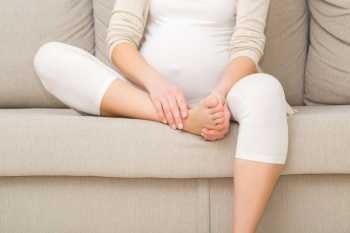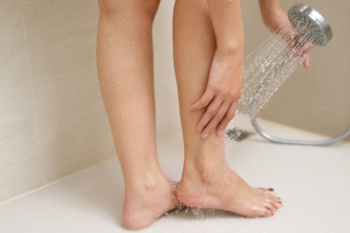September 2024
Insights About Heel Spur Surgery

Heel spur removal surgery is a procedure to alleviate pain caused by heel spurs, which are bony growths on the underside of the heel bone. This condition often results in significant discomfort and can interfere with daily activities. The surgery is typically performed under local or general anesthesia. A podiatric surgeon makes an incision near the heel spur to access the affected area during the procedure. The spur is carefully removed, often along with any inflamed tissue or bursa contributing to pain. The surgeon may also address any underlying conditions contributing to the heel spur, such as plantar fasciitis. If you have a heel spur that is causing you pain and discomfort, it is suggested that you are under the care of a podiatrist who can determine if surgery is right for you.
Foot surgery is sometimes necessary to treat a foot ailment. To learn more, contact Dr. John C. Lawlor of Florida. Our doctor will assist you with all of your foot and ankle needs.
When Is Surgery Necessary?
Foot and ankle surgery is generally reserved for cases in which less invasive, conservative procedures have failed to alleviate the problem. Some of the cases in which surgery may be necessary include:
- Removing foot deformities like bunions and bone spurs
- Severe arthritis that has caused bone issues
- Cosmetic reconstruction
What Types of Surgery Are There?
The type of surgery you receive will depend on the nature of the problem you have. Some of the possible surgeries include:
- Bunionectomy for painful bunions
- Surgical fusion for realignment of bones
- Neuropathy decompression surgery to treat nerve damage
Benefits of Surgery
Although surgery is usually a last resort, it can provide more complete pain relief compared to non-surgical methods and may allow you to finally resume full activity.
Surgical techniques have also become increasingly sophisticated. Techniques like endoscopic surgery allow for smaller incisions and faster recovery times.
If you have any questions please feel free to contact one of our our offices located in Cape Coral and LaBelle, FL . We offer the newest diagnostic and treatment technologies for all your foot and ankle needs.
Negative Pressure Therapy for Diabetic Foot Wounds

Negative pressure therapy, or vacuum-assisted closure, is an effective treatment for diabetic foot wounds, promoting faster healing and reducing complications. This method involves applying a controlled negative pressure to the wound through a sealed dressing connected to a vacuum pump. This pressure helps to remove excess fluid, reduce swelling, and enhance blood flow to the area, which accelerates tissue repair. Additionally, this type of therapy helps to draw the wound edges together, facilitating faster closure and reducing the risk of infection. For diabetic patients, who often face challenges with wound healing due to compromised circulation and neuropathy, negative pressure therapy can be a game-changer. If you have a diabetic foot wound, it is strongly suggested that you schedule an appointment with a podiatrist to determine if this therapy is suitable for your specific wound.
Wound care is an important part in dealing with diabetes. If you have diabetes and a foot wound or would like more information about wound care for diabetics, consult with Dr. John C. Lawlor from Florida. Our doctor will assess your condition and provide you with quality foot and ankle treatment.
What Is Wound Care?
Wound care is the practice of taking proper care of a wound. This can range from the smallest to the largest of wounds. While everyone can benefit from proper wound care, it is much more important for diabetics. Diabetics often suffer from poor blood circulation which causes wounds to heal much slower than they would in a non-diabetic.
What Is the Importance of Wound Care?
While it may not seem apparent with small ulcers on the foot, for diabetics, any size ulcer can become infected. Diabetics often also suffer from neuropathy, or nerve loss. This means they might not even feel when they have an ulcer on their foot. If the wound becomes severely infected, amputation may be necessary. Therefore, it is of the upmost importance to properly care for any and all foot wounds.
How to Care for Wounds
The best way to care for foot wounds is to prevent them. For diabetics, this means daily inspections of the feet for any signs of abnormalities or ulcers. It is also recommended to see a podiatrist several times a year for a foot inspection. If you do have an ulcer, run the wound under water to clear dirt from the wound; then apply antibiotic ointment to the wound and cover with a bandage. Bandages should be changed daily and keeping pressure off the wound is smart. It is advised to see a podiatrist, who can keep an eye on it.
If you have any questions, please feel free to contact one of our our offices located in Cape Coral and LaBelle, FL . We offer the newest diagnostic and treatment technologies for all your foot care needs.
Causes of Painful Feet During Pregnancy

Pregnancy often brings about foot pain due to several factors. Collapsed arches, or fallen arches, are common as the body’s increased weight and hormonal changes put extra pressure on the feet, leading to discomfort and fatigue. Cracked heels can also develop as the skin becomes drier and less elastic, exacerbated by the extra weight and swelling. Swelling, or edema, is another frequent issue, where fluid retention causes feet to enlarge and feel tight, adding to the discomfort. These conditions can make walking challenging and painful. To manage foot discomfort during pregnancy, it is beneficial to wear supportive footwear, maintain good hydration, and practice gentle foot exercises. If you are experiencing foot pain during your pregnancy, it is suggested that you contact a podiatrist who can offer you effective relief techniques.
Pregnant women with swollen feet can be treated with a variety of different methods that are readily available. For more information about other cures for swollen feet during pregnancy, consult with Dr. John C. Lawlor from Florida. Our doctor will attend to all of your foot and ankle needs.
What Foot Problems Can Arise During Pregnancy?
One problem that can occur is overpronation, which occurs when the arch of the foot flattens and tends to roll inward. This can cause pain and discomfort in your heels while you’re walking or even just standing up, trying to support your baby.
Another problem is edema, or swelling in the extremities. This often affects the feet during pregnancy but tends to occur in the later stages.
How Can I Keep My Feet Healthy During Pregnancy?
- Wearing orthotics can provide extra support for the feet and help distribute weight evenly
- Minimize the amount of time spent walking barefoot
- Wear shoes with good arch support
- Wear shoes that allow for good circulation to the feet
- Elevate feet if you experience swelling
- Massage your feet
- Get regular, light exercise, such as walking, to promote blood circulation to the feet
If you have any questions please feel free to contact one of our our offices located in Cape Coral and LaBelle, FL . We offer the newest diagnostic and treatment technologies for all your foot and ankle needs.
Let the Expert Treat Your Ingrown Toenails
Essential Practices for Healthy Feet

Everyday foot care is vital for maintaining overall foot health and preventing common issues. Wearing comfortable, well-fitting shoes is important as they support and protect the feet from stress and injury. Regular walking helps maintain healthy circulation and keeps the feet flexible. Washing your feet daily with mild soap and water is important to remove dirt and sweat, reducing the risk of infections and unpleasant odors. Additionally, wearing clean socks made of breathable materials helps to keep feet dry and helps prevent fungal infections. Conditions that affect the feet, including foot odor, cracked skin, corns, and ingrown toenails, may be prevented by incorporating daily foot hygiene practices. If you have developed a foot condition, it is suggested that you consult a podiatrist who can treat various foot ailments and educate you on effective everyday foot care methods.
Everyday foot care is very important to prevent infection and other foot ailments. If you need your feet checked, contact Dr. John C. Lawlor from Florida. Our doctor can provide the care you need to keep you pain-free and on your feet.
Everyday Foot Care
Often, people take care of their bodies, face and hair more so than they do for their feet. But the feet are a very important aspect of our bodies, and one that we should pay more attention to. Without our feet, we would not be able to perform most daily tasks.
It is best to check your feet regularly to make sure there are no new bruises or cuts that you may not have noticed before. For dry feet, moisturizer can easily be a remedy and can be applied as often as necessary to the affected areas. Wearing shoes that fit well can also help you maintain good foot health, as well as making it easier to walk and do daily activities without the stress or pain of ill-fitting shoes, high heels, or even flip flops. Wearing clean socks with closed shoes is important to ensure that sweat and bacteria do not accumulate within the shoe. Clean socks help to prevent Athlete’s foot, fungi problems, bad odors, and can absorb sweat.
If you have any questions please feel free to contact one of our our offices located in Cape Coral and LaBelle, FL . We offer the newest diagnostic and treatment technologies for all your foot and ankle needs.









